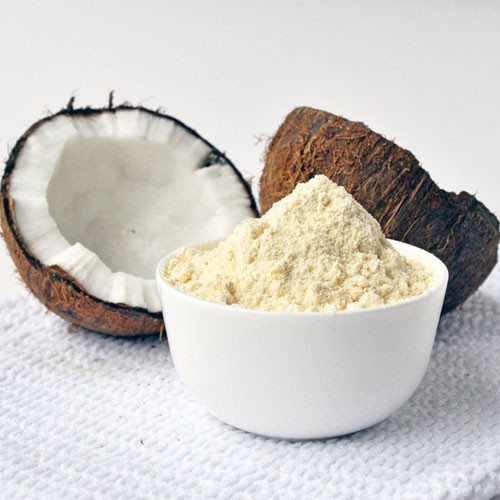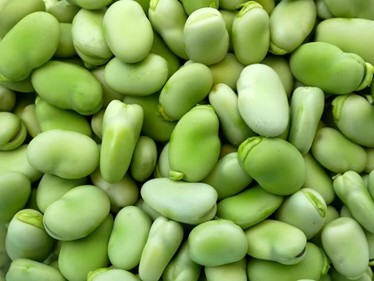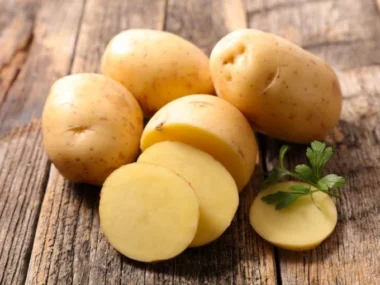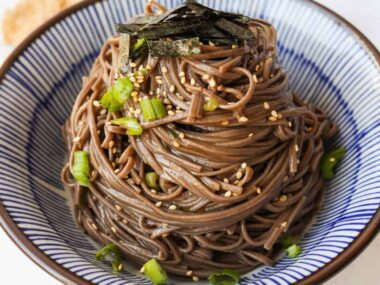Are you trying to find a baking equivalent for coconut flour? Don’t worry if you’re avoiding coconut due to allergies, taste, or just running out!
Many substitutes are available that can produce the same delectable effects without skipping a beat. You can still get the desired texture and flavor in your baked products by using these simple replacements.
There are advantages to using alternatives such as oat flour, almond flour, or even ordinary all-purpose flour. For individuals on a low-carb or gluten-free diet, almond flour is ideal, while oat flour offers a substantial, high-fiber boost.
These substitutes work well in cakes, cookies, muffins, and other baked goods. Your delights will taste just as good!
Let’s explore 11 best substitutes for coconut flour in baking.
Substitute For Coconut Flour In Baking
1. Almond flour

What does coconut flour do in baking? Well, it’s known for soaking up a lot of liquid, which makes baked goods dense and moist.
However, sometimes you might not have coconut flour on hand, or you might just want to try something different.
In that case, almond flour works very well as a coconut flour substitute, offering a slightly nutty flavor and a lighter, fluffier texture.
It’s also low in carbs, gluten free, and high in protein, so it’s ideal for foods like pancakes, muffins, and cookies.
Moreover, almond flour adds a nice richness to your recipes, making your baked goods feel a little more decadent.
2. Cassava flour

Can I use cassava flour instead of coconut flour? Of course!
When baking, cassava flour is an excellent substitute. Made from the root of the cassava plant, it has a mellow, neutral flavor that complements both savory and sweet dishes. It is also free of gluten and grains.
Since cassava flour is much more similar to ordinary flour in texture than coconut flour—which may be problematic due to how much liquid it absorbs—swapping it out is easier and doesn’t need significantly altering your recipe.
Everything from cakes and cookies to breads and pancakes may be made using cassava flour. Additionally, it has a lot of fiber, which adds to the full and pleasant texture of your snacks. Cassava flour may become your new favorite if you’re searching for a simple, smooth substitute for coconut flour.
3. Oat flour

Oat flour, known for its smooth texture and mild flavor, makes an excellent substitute for coconut flour in baking. It is created from finely ground oats, making it a naturally gluten-free choice suitable for anybody who avoids wheat.
Oat flour is less absorbent than coconut flour, making it considerably simpler to work with and resulting in a light, fluffy texture in baked items. Oat flour is versatile and may be used in cookies, muffins, pancakes, and bread.
It is also high in fiber, making it not only tasty but also beneficial to digestion. Plus, oats are inexpensive and readily available, making this flour an excellent choice for healthier, simpler baking.
Read also, 10 Best Orange Juice Substitute For Baking
4. Chickpea flour
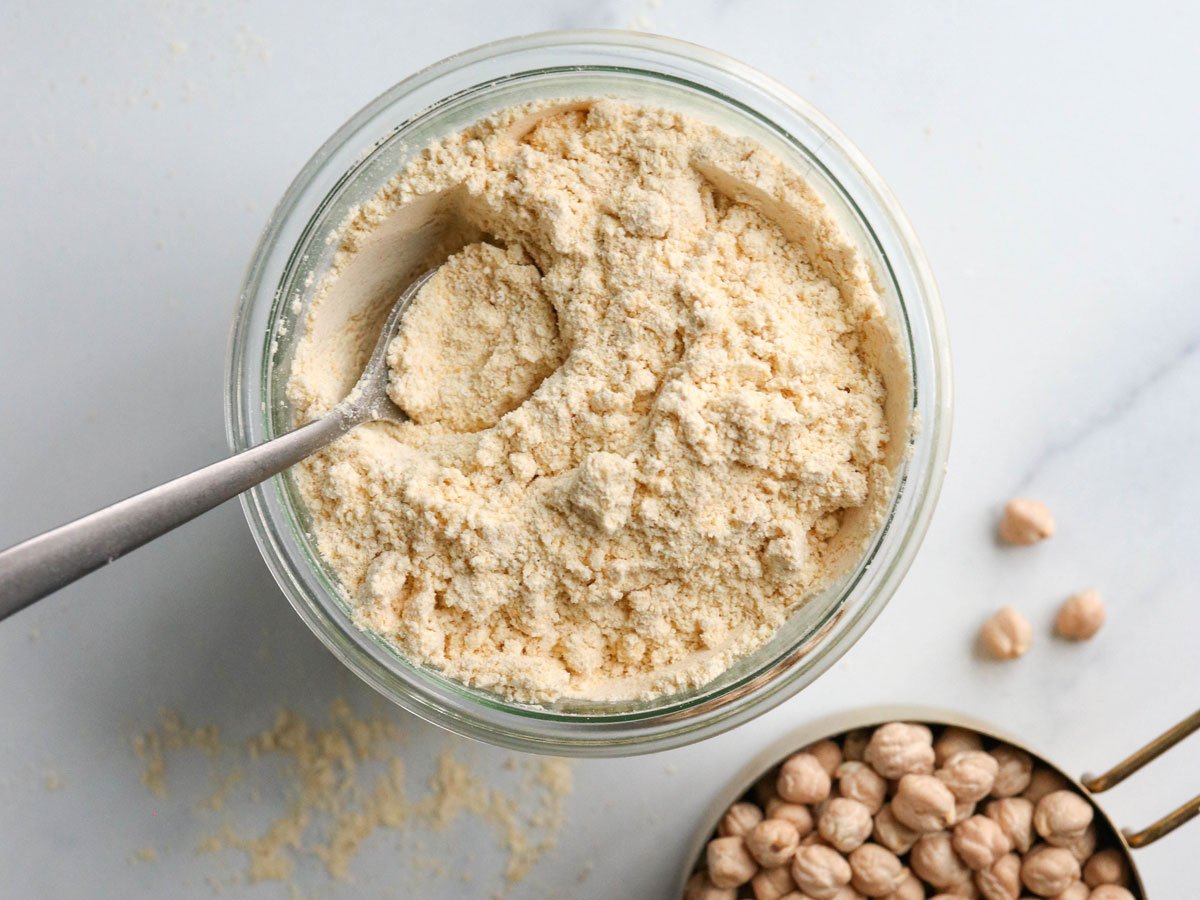
How can chickpea flour step in as a substitute for coconut flour in baking? Grinded chickpeas are used to make chickpea flour, a high-protein, gluten-free substitute that gives your dishes a subtle nutty taste.
If you want to increase the amount of nutrients, such as iron and fiber, and give your baked products more heart, this is a terrific alternative. It also has a silky texture that complements a variety of recipes. Chickpea flour may be used in savory recipes like pizza crust and flatbreads, as well as sweet ones like cakes and cookies.
Although it has a higher density than coconut flour, its excellent binding properties make it a flexible substitute in a wide variety of gluten-free and vegan dishes. Just keep in mind that you’ll use less liquid than you would with coconut flour, so modify your recipe appropriately for the best results!
5. Soy flour

For a gluten-free, high-protein alternative to coconut flour in your baking, soy flour works well.
Because it is derived from ground soybeans, it has less carbohydrates than other flours and adds more nutrients, such as fiber and protein, to your dishes.
Furthermore, soy flour gives your baked products a subtle, nutty flavor without taking over. Soy flour works well in a variety of baked goods, including breads, muffins, pancakes, and sauces and soups.
It’s an adaptable option that tastes well in savory and sweet dishes, so you can be creative in the kitchen.
6. Flaxseed meal

Do you need a simple and healthful coconut flour substitute? Flaxseed meal might be the solution!
Flaxseed meal is an excellent option for baking without gluten since it is high in fiber and omega-3 fatty acids. It gives your baked products a healthy boost and works well in many recipes.
It offers a mild, nutty flavor. Coconut flour may be swapped out for a flaxseed meal for making items like bread, muffins, and pancakes. It is particularly useful for vegan dishes since it helps bind components together.
It’s also a great option for those wishing to add some subtle crunch to your snacks and make them a little healthier!
7. Fava Flour
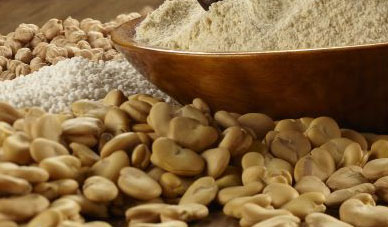
The main difference between coconut flour and fava flour is the distinct taste and texture they provide to your baking. While coconut flour is recognized for its gentle sweetness and high fiber content, fava flour has a nutty flavor and a protein boost, making it an excellent choice for those wishing to change things up.
Fava flour is not only gluten-free, but it is also high in key nutrients, making it a healthier option for your favorite dishes. Fava flour excels in a wide range of baked items, from pancakes and muffins to bread and cookies. Its propensity to absorb moisture allows it to produce a lovely fluffy texture akin to coconut flour.
Furthermore, it is a wonderful source of plant-based protein, which is perfect for anybody looking to improve their nutrition game. So, if you’re looking for a flexible and delicious replacement, fava flour might be the missing component in your baking!
8. White Bean Flour
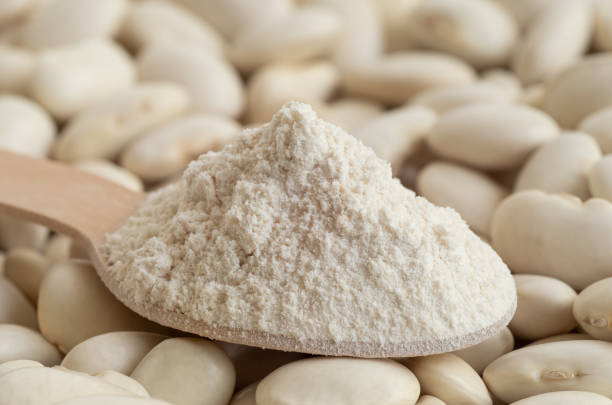
Indeed, white bean flour works wonderfully in place of coconut flour if you want to switch things up in your baking! This lesser-known flour adds a mild earthy taste to your delights and increases their nutritional value because it’s packed with protein and fiber.
As white bean flour produces a wet texture, it’s ideal for anything from cookies to pancakes, unlike coconut flour, which can be extremely absorbent. In many recipes, white bean flour may be substituted for coconut flour, but it’s easy to use; you only might need to modify the liquid to reach the desired consistency.
It’s a fantastic alternative for those avoiding gluten because it’s also gluten-free. So, white bean flour may be your secret ingredient for better, healthier treats, whether you’re making a cake or some delectable muffins!
9. Gluten-Free Flour Blend
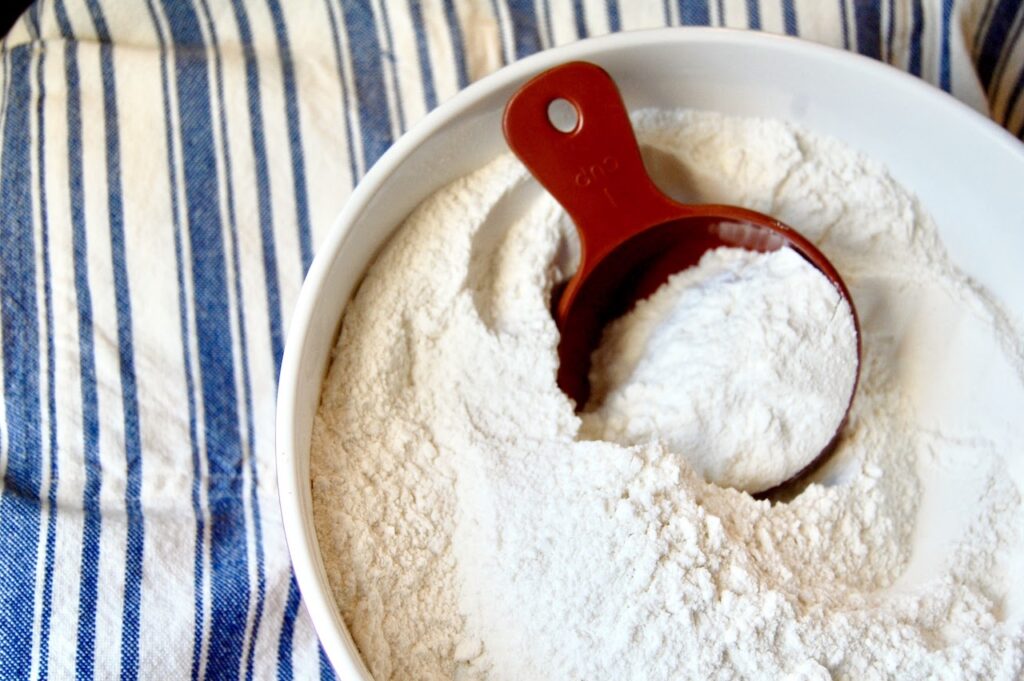
If you’re on a gluten-free diet or simply want to change up your baking routine, a gluten-free flour blend might be an excellent option for coconut flour.
Unlike coconut flour, which may be thick and absorb a lot of liquid, gluten-free flour mixes have a lighter texture and more balanced flavor profile.
They mix flours such as rice, tapioca, and potato starch, making them suitable for a wide range of dishes. Using a gluten-free flour blend opens up new culinary options, such as soft cookies, fluffy muffins, and chewy bread.
Furthermore, you may reap the advantages of a gluten-free diet without compromising taste or texture. So, whether you’re making a treat for yourself or catering to guests who have dietary constraints, this flour blend is an easy and delicious option that everyone can enjoy!
10. Ground Flax Seeds

Never underestimate the potential of ground flax seeds as a transformative alternative for coconut flour in baking.
These small seeds, which are high in fiber, omega-3 fatty acids, and important minerals, not only improve the taste of baked goods but also increase their nutritional worth.
When you substitute ground flax seeds for coconut flour, you get a nutty taste and a moist texture that works well with everything from pancakes to muffins.
Using ground flax seeds in your dishes is easy and flexible. They are excellent in gluten-free baking and may even help bind components together, making them ideal for cookies and bread.
They’re also a great choice for those trying to enhance their plant-based protein consumption. So, while you’re baking, try reaching for ground flax seeds to boost your creations.
11. Psyllium Husk Fiber

Do you believe baking with coconut flour is your only choice for making wonderful gluten-free treats? Think about it again! Psyllium husk fiber is an excellent alternative that not only improves texture but also increases the nutritional content of your favorite dishes.
This natural fiber, produced from psyllium seeds, has grown in popularity due to its capacity to provide moisture and bind ingredients together, making it a game changer in the baking industry. Adding psyllium husk fiber to your baked products may improve the overall texture, giving your muffins, bread, and pancakes a wonderful chewiness.
It also has several health benefits, including enhanced digestion and higher fiber intake, making it an excellent choice for anybody seeking to maintain a healthy diet. So, if you are ready to switch up your baking routine and try something new, psyllium husk fiber might be the perfect substitute for coconut flour.
Final Thoughts
In the end, finding a different baking ingredient for coconut flour can lead to an exploration of diverse textures and tastes. You may use oat flour for a tender taste, cassava flour for a smooth, gluten-free alternative, or almond flour for a nutty flavor. Because coconut flour absorbs a lot more liquid than other flours, keep that in mind when you modify the liquid in your recipe. Try using these substitutes to make your baked products just as wonderful, or sometimes even better! So go ahead and experiment and find your favorite flour alternative.
